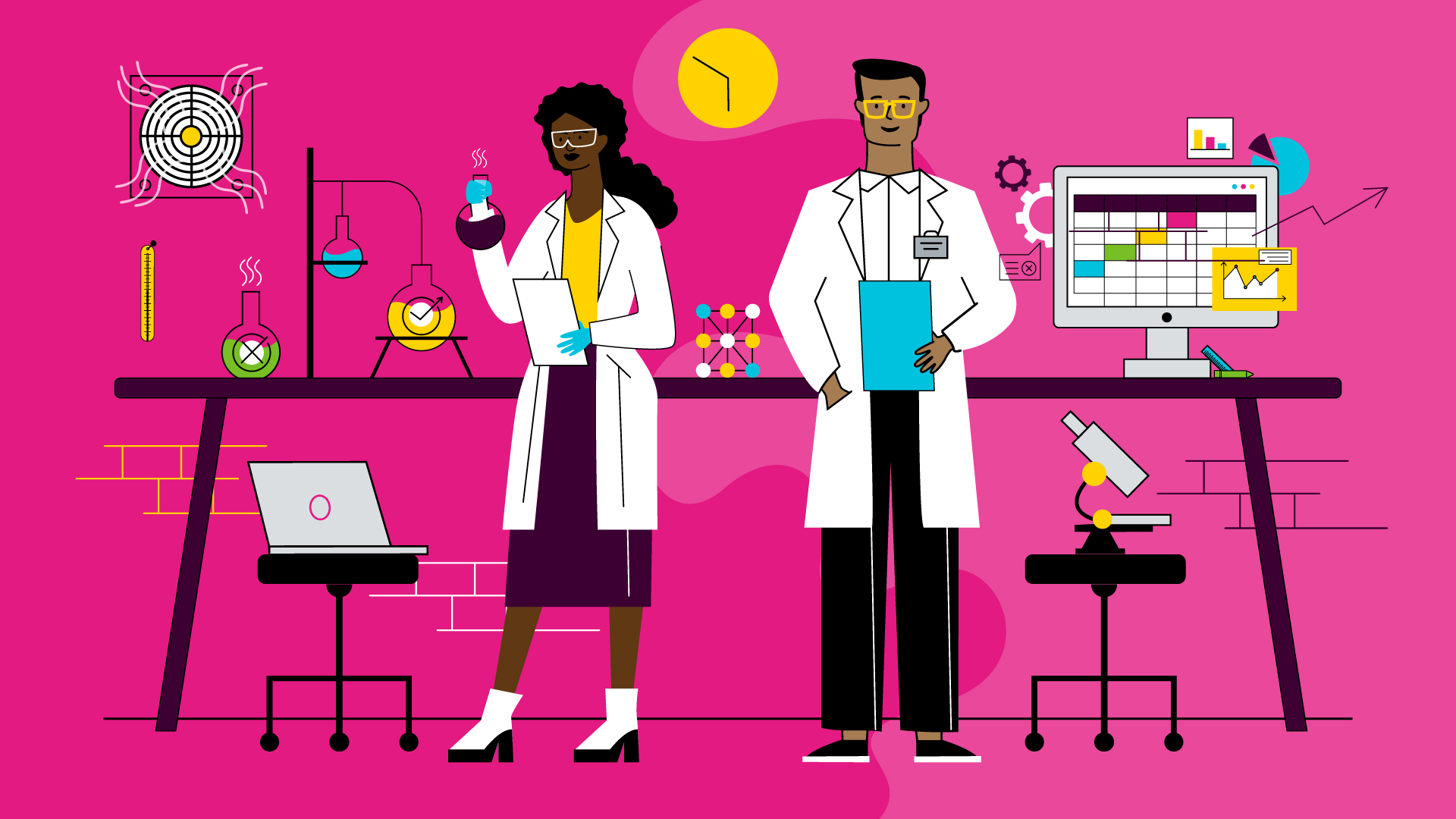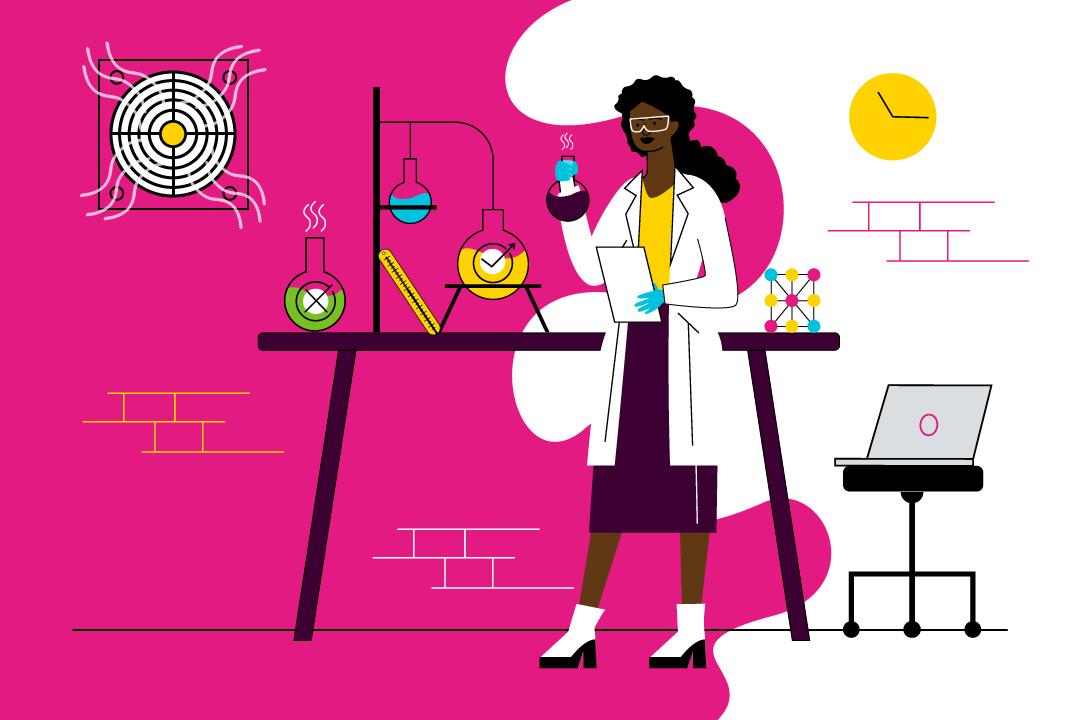Sustainable considerations if your research is conducted mainly in or around a laboratory.
If you're a lab-based researcher, your work mainly takes place in a laboratory and focuses on collecting and analysing quantitative data. Most of your time is spent planning, conducting experiments, and analysing results. In the early stages, you may spend a lot of time on desk-based tasks, like defining your research question, reviewing existing studies, and designing data collection methods. Later, analysing the data and writing up your findings also requires significant desk work.



